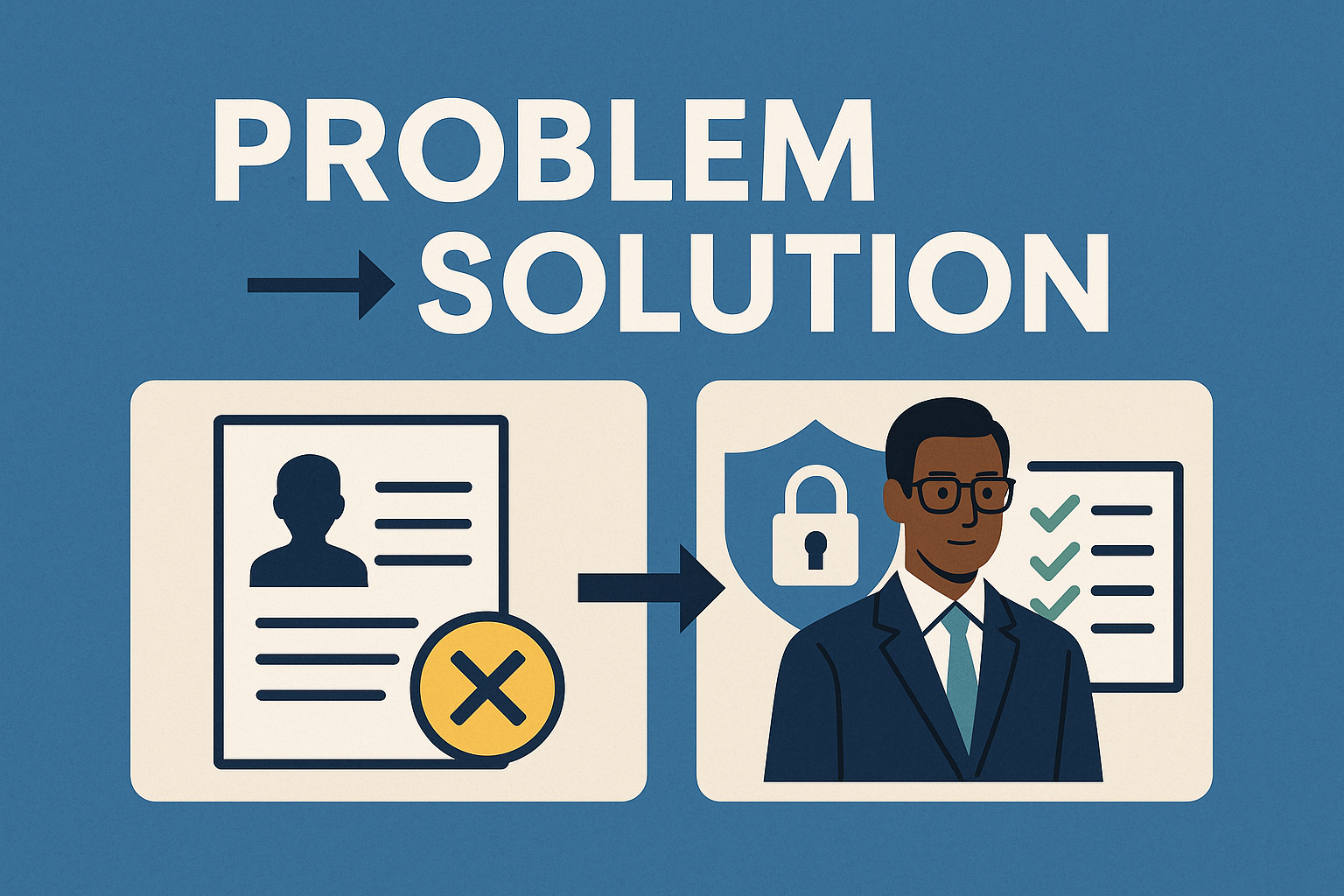Problem 1: Hiring Confusion
Solution: Learn to Translate Risk into Business Terms
Hiring managers don’t always come from a technical background. In fact, the decision to hire a cybersecurity professional often comes from the business side of the organization — a COO, CFO, or even the CEO. They know cyber threats are real, but they struggle to justify the cost of hiring or to confidently evaluate one applicant over another.
For someone trying to break in, this means you can’t just talk in technical language. You need to learn how to translate security into risk and impact. If you can explain how an attack affects revenue, reputation, or regulatory compliance, you stand out immediately.
Problem 2: Cybersecurity Is Seen as a Blocker
Solution: Frame Security as a Business Enabler
Many organizations hesitate to hire cybersecurity professionals because they don’t want someone who restricts operations. When a hiring team interviews a highly technical candidate, they often hear textbook answers about locking systems down. The result? No hire, and the position remains unfilled.
If you’re trying to enter the field, don’t just show how you can secure systems — show how you can secure them without blocking the business. That means tailoring controls to business risks, not just applying every possible safeguard. Organizations want professionals who protect and enable, not professionals who say “no” to everything.
Problem 3: Budget and Leadership Gaps
Solution: Communicate Budgets and ROI Clearly
Budget is always an issue, but the real challenge isn’t cost — it’s justification. A company may hire an analyst to secure email systems, then realize they also need to pay for tools, and integrations. Suddenly, that analyst is managing vendors, tracking budgets, and trying to do the technical work all at once. Burnout follows quickly, and the business still doesn’t see a clear link between money spent and security gained.
For newcomers, this is where understanding the language of business is critical. Be able to answer questions like: “If we buy this tool, what risk are we reducing?” The professionals who can connect technical work to business value rise above the rest.
My Final Thoughts
There are plenty of reasons why eager professionals still struggle to break into cybersecurity. But in my opinion, the biggest gap isn’t technical — it’s business alignment. If the next generation of cybersecurity professionals learn to start with “why” before jumping into the “how,” they’ll go much further.
I can’t tell you how many times I’ve heard someone say, “We need to protect our systems,” only to be met with blank stares from executives who ask, “Why?” A technical answer isn’t enough. The CEO, COO, and CFO will all demand a business answer — and the professionals who can confidently explain why security matters in terms of risk and return will be the ones who get hired, grow, and lead.
